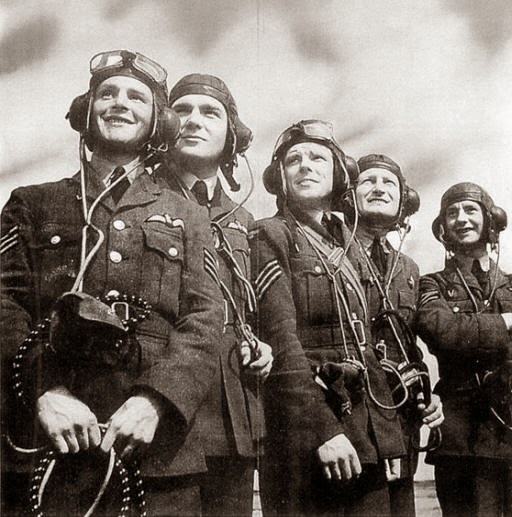Imagine flying in a steel tube. The cold air outside penetrates every part of your body, despite the extra clothing you are wearing. Black clouds of flak fill the air and bits of shrapnel clang off of your airplane. Some of them come a little bit too close for comfort. And then there are the German fighters. They appear and spray cannon fire and machine gun rounds. You try to manhandle your .50 caliber machine gun from the waist hatch but they appear and disapper so quickly that you have a hard time finding a target. And you do this for hours on end. Statistically, you are more likely to be killed, wounded, or captured than you are to survive your tour and return home. There are a lot of ways to die in the skies over Europe during the Second World War, none of them pleasant.
I have always been fascinated with military aircraft. Ever since I can remember, I've always studied planes and the men who flew them. This past week I finished reading Masters of the Air: America's Bomber Boys Who Fought the Air War Against Nazi Germay. It is a very well written account of the growth of the American bomber force in England and their tragidies and triumphs. Donald Miller relies heavily on first hand accounts of the fighting and his paints on a broad canvas. The book touches on every aspect of life in a bomber squadron. From combat stress to going to London on a three day pass, no stone is left unturned. I cannot recommend this book enough to those of you who have an interest, not just in the air war over Europe, but also in World War Two in general. However, the book does focus on the 8th Air Force and so others in Europe might feel a little left out.
This has led me to wonder, Dear Readers, if any of you have a favorite aircraft? Obviously the B-17s are quite popular, and rightfully so. Any others?
My name is Lee Hutch and I am a Half A$$ Historian.
USAF Photo




